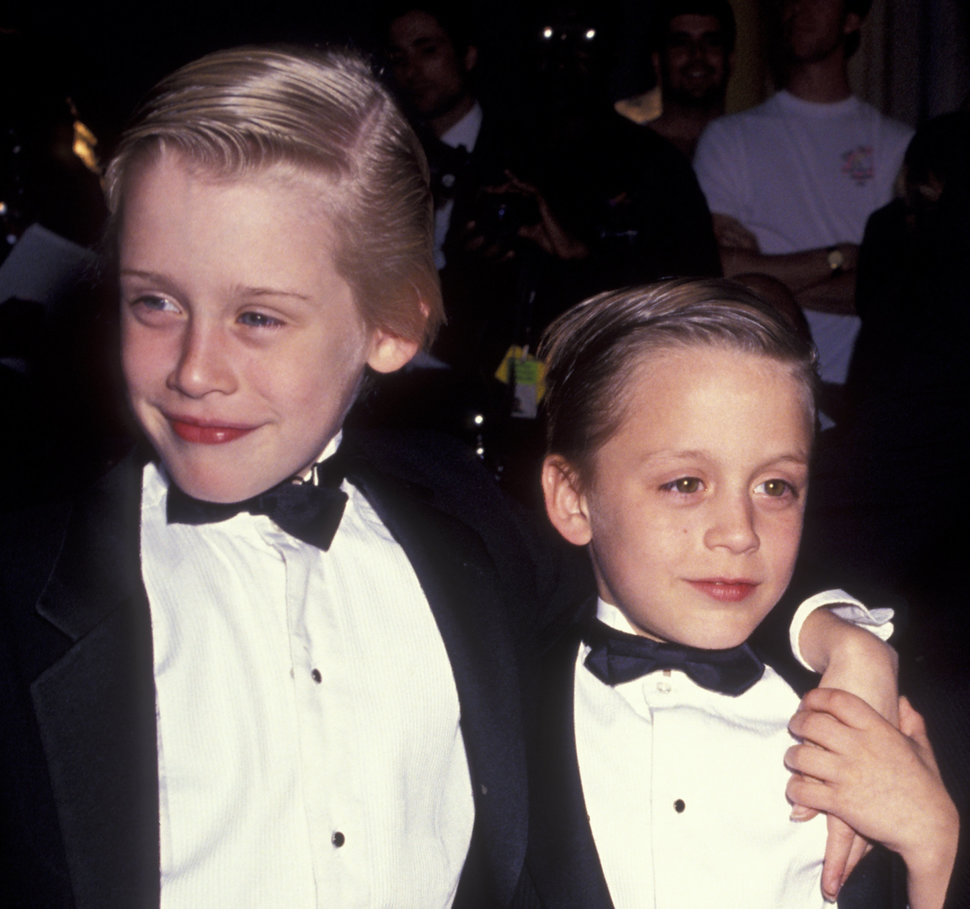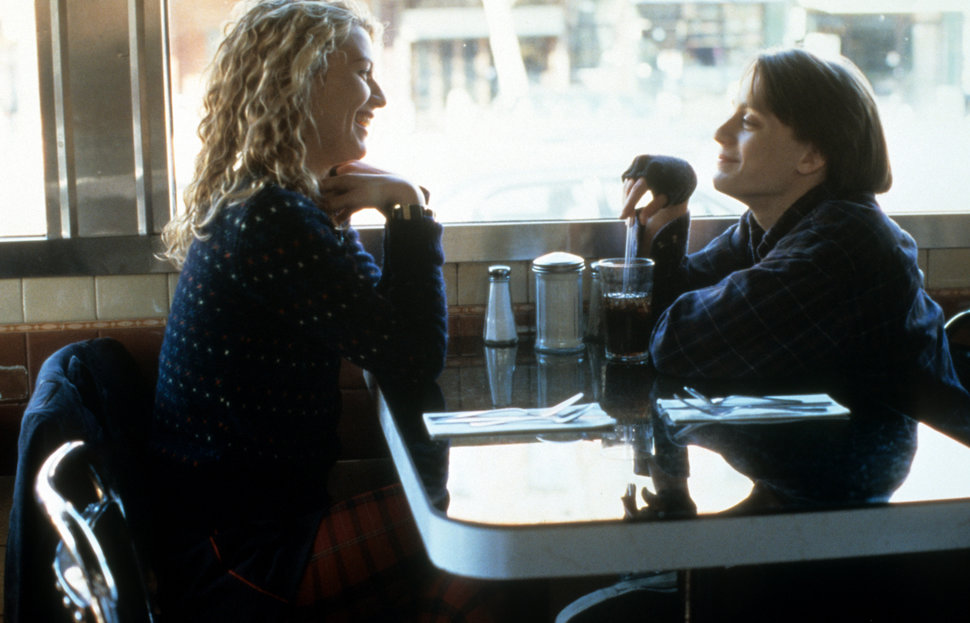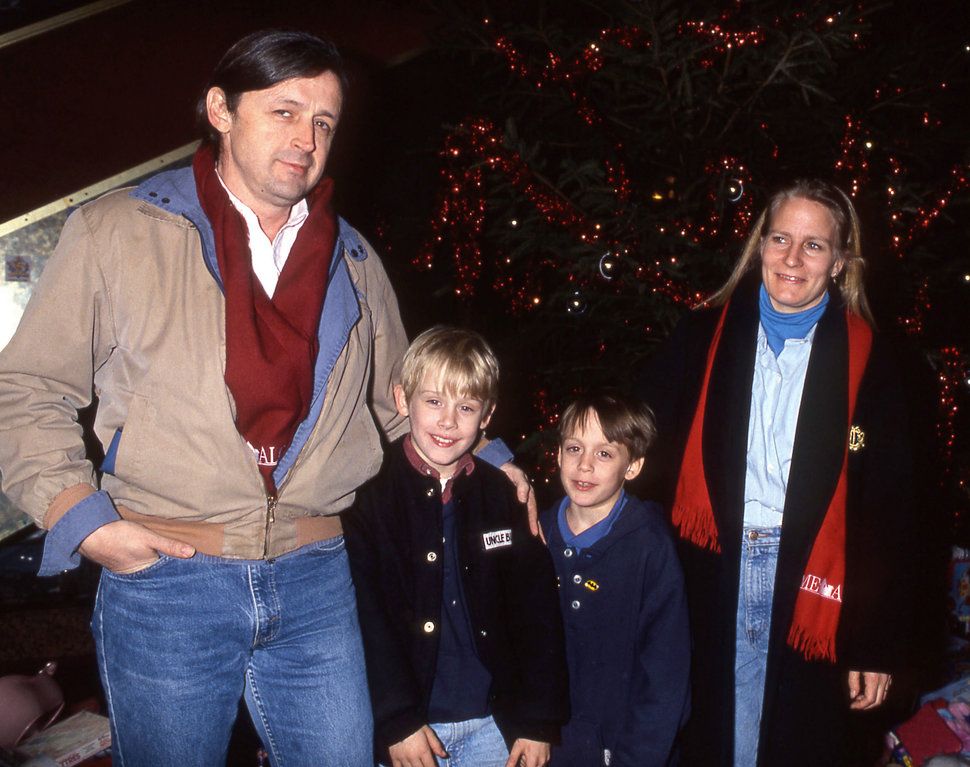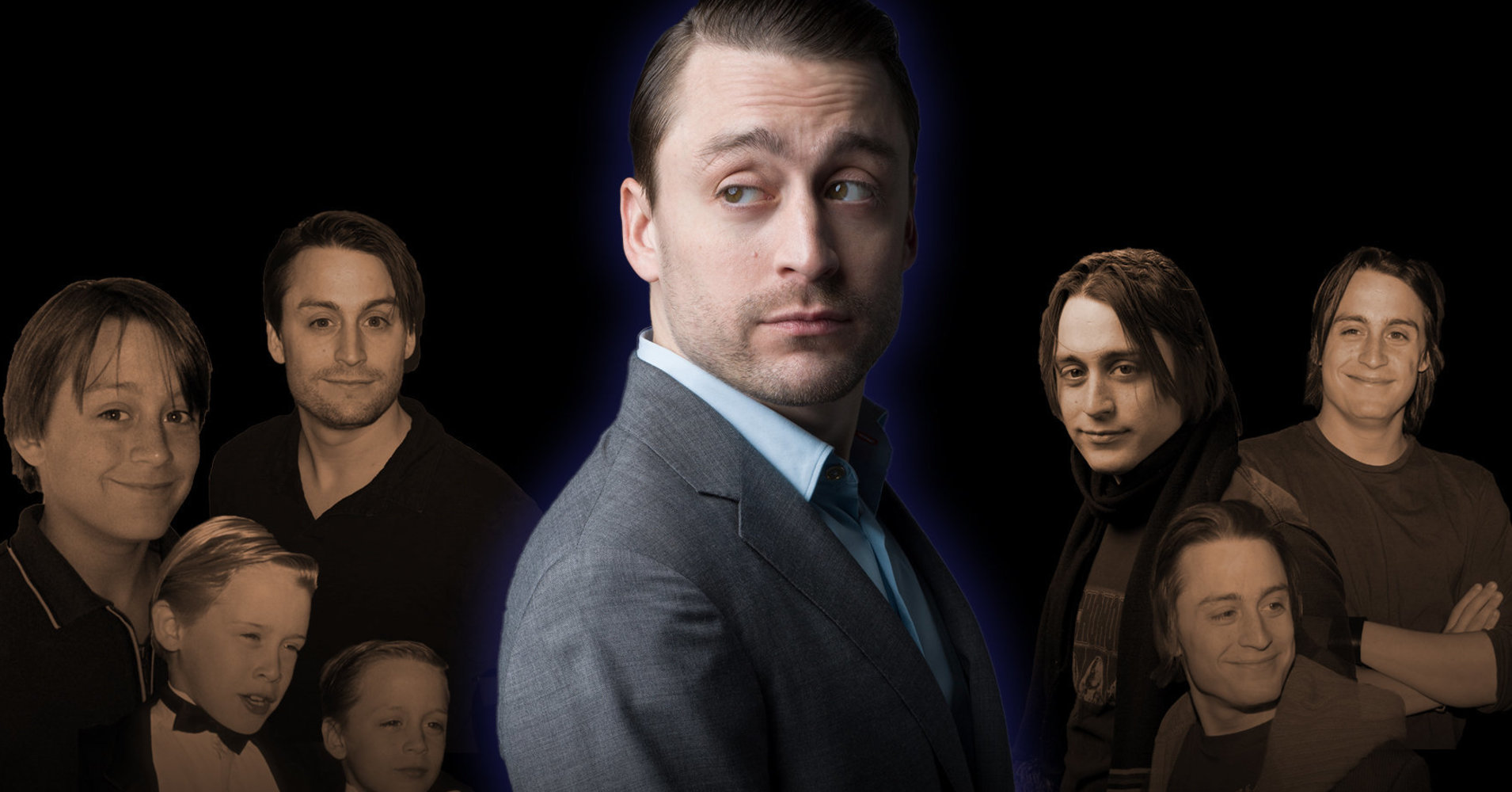[ad_1]
When Kieran Culkin first started reading the script for “Succession,” he wondered whether it had been sent to the wrong person. The HBO powers that be originally thought he’d be a good fit for the character of Greg, a bumbling nitwit who gets high in his first scene and spends the rest of the first season failing to sidle his way up the ladder of a massive media and entertainment conglomerate owned by his great-uncle, Logan Roy.
Almost from Greg’s first line, Culkin knew he was wrong for the part. “He’s already a lot younger than I am, and just the voice ― I was, like, this is not me. I am not right for this.”
When I met Culkin at a small restaurant in the Noho neighborhood of Manhattan last Monday, it was just as clear to me as it was to him that he’s too old to play a character like Greg. But something in the Roy family’s dark saga held Culkin’s attention anyway. He said he kept reading the script, which follows the foibles of the billionaire Roy clan as its individual members vie for power within. A few pages later, Logan’s overconfident third son, Roman, appears, led into a meeting by a man hired explicitly to burn sage.
“Hey, hey, motherfuckers!” Roman proclaims to a room full of his father’s business associates.
“And I was, like, ‘Oh, who’s this fucking guy?’” Culkin said.
Culkin eventually got the part of Roman, an incompetent and lazy man-child who believes he wholly deserves the title of chief operating officer, even though he has little interest in doing any of the work that comes with it. Among the many nefarious faces that make up Logan’s Waystar Royco empire, Roman stands out as perhaps its most cynical ― a ratings-obsessed media executive motivated solely by profit. At one point, in his interpretation of corporate disruption, he takes off his shirt in a meeting, flexing and joyfully screaming “Blood!” at the thought of layoffs. During another, he gleefully tells his sister about a new viral video that is “evidence of precisely the kind of disgusting, liberal, metro butt-love that makes our viewership angry enough to buy pharmaceuticals.” To Roman, nothing could be better.
Culkin can’t say exactly what drew him to the morally depraved heir, described by his father as a “moron” and his brother as a “walking fucking lawsuit.” But it’s not hard to imagine some small part of Culkin was intrigued by the idea of playing such a sneering member of a media empire.
After all, Culkin’s distaste for the tabloid industry is beyond well-established. (“No matter what’s written there, it’s a total lie, even the person’s name, lie, lie, lie, lie, everything’s a lie,” he once told New York Magazine.)
But let’s not lump Culkin into that hyperpartisan Level 10 “FAKE NEWS” category of 2018 American paranoia. Mostly because when he told me “Now it’s a thing, ‘fake news,’” and I said, jokingly, “Fake news. You’re a believer,” he got nervous and pushed out a quick “no,” immediately realizing the millions of different ways such a quote could be aggregated, recirculated, quoted out of context and otherwise misinterpreted. You can almost see it now, can’t you? “Kieran Culkin Joins the Chorus: Media Is ‘Fake News.’”
Culkin’s distrust is of a more justifiable form, born out of a lifetime of his surname showing up in headline-grabbing tabloid fodder. From the moment his parents, Kit “The father from hell” Culkin and Patricia Brentrup, entered into an ugly, obsessively covered custody battle to when the National Enquirer proclaimed his eternally famous brother, Macaulay, had “6 Months to Live” in 2012 (he’s still alive), Culkin’s last name has served as a way to move and make paper ― the most intimate moments of his life repackaged as factually questionable entertainment content to sell ads against.

Ron Galella via Getty Images
“There are things that are out there in the world as fact because it was written in print that are just completely false. My brother did not divorce his parents. They did not fight over his money,” he said. “But that’s out in the world as fact.
“I learned at a very young age to be, like, ‘Oh, I get it: It’s bullshit,’ shit that’s written in print.”
In person, Culkin ticks most of the boxes of adulthood: In his 30s. Takes his coffee black. Enjoys talking about his favorite East Village dives. Married five years. Nice watch. Clothes that fit. Hair slicked around his head just so. Like Roman, Culkin drops a “fuck” or “shit” every ninth word or so, as when he said to me, “Hold on, I’m going to eat the fuck out of these pickles. You say something for a minute, ’cause I’ve got a mouth full of shit.”
But no matter how many fucks he lets out ― and by my count, he let out around 25 over 40 minutes ― Culkin remains stuck with a membership to the official Former Child Actors club. Macaulay, or Mac, if you’re in the know, was always the main draw ― history’s most famous kid actor without a drink named after him. But Kieran was there too, in “Home Alone” and “Home Alone 2.” He found himself on the stage of “Saturday Night Live” before the age of 10, and schmoozed with Jay Leno on “The Tonight Show” before his voice dropped.
Which is probably why ― and here I’m guessing ― Culkin might have been a bit annoyed when HBO suggested he audition for Greg.
But after 10 episodes of watching Culkin-as-Roman take part in his family’s imperious game of human chess, it’s hard to imagine the actor playing anyone else. If Jeremy Strong ― who plays Kendall, Logan’s cocaine-addicted second son ― is the show’s tragic star, Culkin is its nervous energy. There’s something in the way he pushes out a phrase like “What a pathetic beta cuck,” or belittles doctors and waiters alike.
What sealed Culkin’s interest in his character came in the first episode during a family softball game, when Roman points to a kid on the sidelines, the son of the site’s groundskeeper. Everyone grows quiet as Roman whips out his checkbook and starts writing a check for $1 million. Hit a home run in their game, Roman tells the boy, and the money is his. For the child and his family, it’s a potentially life-changing moment. For Roman, the child is nothing but a momentary subhuman toy to mess with and cast aside. After the child is tagged out at home, Roman can’t control his laughter. “I’m sorry, I can’t give it to you,” he says as he tears up the check. It is a degrading, truly awful moment of television.
“Oh, I get it,” Culkin remembered thinking, “he’s a fuck face.”
When Culkin filmed the scene, he embodied evil, letting out a cackle so cruel it sets the show’s moral compass for the remaining season. Culkin himself is not sure where his ability to play somebody like that came from.
“Being able to connect to some degree, not in a positive way, with these characters is odd to me because I don’t know the multimillionaires, I don’t know the super-rich, yet I know assholes like that,” he said. “I can’t even quite specifically pick out who I know that is exactly like that, but it’s weird that you can still, for me, relate.”
“Succession” suffered from a slow start, only truly hitting its stride around Episode 6, when Kendall leads the board in a tense vote of no confidence against Logan, who’s recently suffered a stroke, unleashing a sequence of events within the Roy family that are both comical and horrifying.
Culkin owns up to that. “The first three episodes to me, it’s not like they’re unwatchable,” he said, “but it’s not quite the show yet.”
Which, according to him, is fine. Some shows don’t grab you on first watch, and one in particular in his opinion: “I probably shouldn’t even say this on record. The example I have is actually [the British comedy] ‘Peep Show,’” which was coincidentally also developed by “Succession” creator Jesse Armstrong.
But the first season of “Succession” gained enough momentum before concluding Sunday evening for HBO to pick it up for another season ― making this the first time Culkin has ever been part of a television show that made it to Season 2, according to his IMDB page, a small victory in his more than two decades on-screen.
Culkin’s most acclaimed role came in 2002, when he earned a Golden Globe nomination for his role in “Igby Goes Down.” But that time the victory led to a full-blown existential crisis.

United Artists via Getty Images
“[I] found myself at the age of 20 with a career I never chose, [and I] freaked out,” Culkin said. “I think everybody around that age has some sort of crisis. Usually, it’s like a straight-up ‘Oh, I don’t know what I want to do.’ Mine is, ‘I don’t know what I want to do with my life, yet here I am doing it.’”
Culkin took a break before eventually returning to acting, mostly because he wasn’t sure what else to do. “I was just sort of doing it in the meantime,” he says now. He took parts in movies like “Lymelife” and “Scott Pilgrim vs. the World.” Did two episodes of “Fargo.” Performed multiple versions of a stage play he loved, Kenneth Lonergan’s “This Is Our Youth.” In 2014, he was still apprehensive. “I often think about getting out of this job, but I’m terrified that there’s nothing else,” he told The Daily Beast.
Since then, Culkin said, something clicked. He remembered coming home from work one day and thinking, “Oh, I think I’m actually enjoying this.”
“I think I know what I want to do now,” he said to himself. “I think I should do this.”
Now deep into his 30s, Culkin has established himself as a stronger and more serious actor than the “essentially retired” Macaulay ever did. And in Roman, Culkin has stumbled upon something as special as it is sinister. TV Guide described Roman as “the very definition of the hate-f―k,” but he’s probably more accurately categorized as sexual overcompensation personified. He tells his brother that his “face is drowning in pussy,” despite the fact that his various partners claim he rarely wants to have sex. He masturbates to his office view of New York City while a string of emails piles up behind him. (“It’s to gain some sort of control,” Culkin surmised.)
More interesting than his sex life, though, is Roman’s complex relationship with his manipulative and emotionally abusive father. While most people want to prove their competence to the people around them, “Roman, for the most part, doesn’t give a fuck about that,” Culkin said, adding, “If his girlfriend says, ‘No, but you did a great job,’ it’s like: ‘Fuck you. Don’t patronize me.’” What he wants, Culkin said, is his dad’s approval: “That’s the only person that can get him, the only person that can look at him and make him nervous.”
Logan does exactly that when Roman prepares to stand against the tycoon in the vote of no confidence. With his father staring down at him, Roman can only muster a meek “maybe” before he slouches into his chair like an admonished child and votes with his father. Thanks to Roman, Logan lives to fight another day atop his dynasty, while Kendall is forced, temporarily, to surrender.
Earlier, in Episode 2, Roman finds himself watching as the world repackages his family’s tragedy into viral content. He and his family are huddled together in a New York hospital, awaiting information about their famous father’s deteriorating health post-stroke, like characters in a Gothic novel, when Roman starts scrolling through Twitter. His sister, Shiv, asks what people are saying.
“Eh, rumors, you know,” Roman replies matter-of-factly. “Some of Twitter says he’s dead ― and also a good deal of rejoicing at our father’s potential demise.” He notices a short video of the “South Park” kids yelling, “Oh my God, we’ve killed Logan! We’re bastards!” and asks an employee to “find out who these fuckers are and report them or screen grab their shit.”
When Culkin’s own father was hospitalized after suffering a stroke in 2014, TMZ, The Daily Mail, Perez Hilton all repackaged the tragedy as well. The National Enquirer pounced, too, running a headline that read, “Macaulay Culkin Rejects Dying Dad: ‘Rot in Hell!’” But unlike Roman, Culkin wouldn’t have been sifting through Twitter. “That would never be something that I would do willingly,” he says of social media more generally. “Because already at a young age, there was a public perception of me.”

Francis Apesteguy via Getty Images
Like Roman, however, Culkin and his siblings have a less than ideal relationship with his father. By all accounts, they have been mostly if not entirely estranged from Kit ever since their mother won custody of the children in the 1990s. Patricia, the mother, claimed during the custody battle that Kit had been abusive, and Culkin’s brother Macaulay has continued to do so throughout his life.
“He was a bad man,” Macaulay Culkin told comedian Marc Maron earlier this year.
When I asked Kieran Culkin if he has spoken with his father recently, he answered with two no’s so quickly that I couldn’t bring myself to ask a follow-up question, only saying, for reasons still unbeknownst to me, “Fuck ’em.”
“Fuck ’em,” Culkin agreed. “I’ll go on record: Yeah, fuck ’em.”
After a lifetime of his last name being splattered across the front pages of tabloids, Culkin seemed ready to move on from the controversies that have dogged him since he was a child actor with moppy hair and oversized clothes. That’s not him anymore.
What we’re looking at instead is Kieran Culkin, age 35 ― no longer a Greg and fully embracing life as Roman.
[ad_2]
Source link

